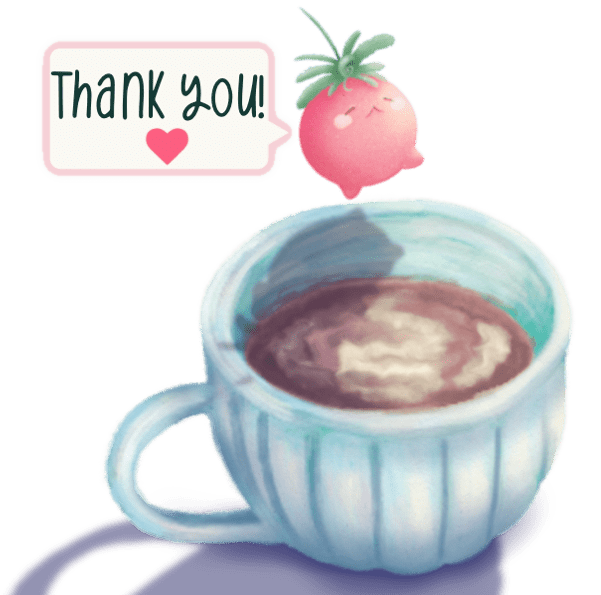Welcome to Moonbury
Not all games immediately grip you.
Sometimes, the game mechanics take their time to introduce themselves, usually to ensure the player isn’t overwhelmed. Which, considering my neglectful history to open world games, happens to me frequently.
Therefore, in hindsight, you can appreciate the beginning’s pace as a carefully constructed tutorial focused more on teaching rather than spectacle that dazzles but leaves you lost afterwards.
I’ve encountered a few games like this, and I do have to push against my nature to drop a game if it doesn’t capture my attention right off the bat. It’s not just games – I’m like this with movies and shows as well. With Potions Permit (2022) I refused to back down.
1. because I had purchased it (no one likes wasting money) and
2. because I had become familiar enough with simulators of its nature to trust it would gradually take over my life, regardless of its slower easy-going world.
I experienced it with Animal Crossing: New Leaf (2012); The Sims (2000 –) franchise can also begin slowly as you navigate your characters into daily routines, and Stardew Valley (2016) especially took me a few tries. However, once the ball got rolling, I could not put the indie farming simulator down. I wasn’t going to stop until I had successfully romanced Shane and farmed every vegetable.
Potions Permit fits snugly in this genre. It is scarily easy how many hours go by as I focus on the various tasks that make up the gameplay. Like gathering materials in the wild through mining, foraging, chopping wood or battling monsters. Or diagnosing and curing illnesses. Or building relationships bit-by-bit with every member of the new town I’ve moved into, Moonbury. Or rather – my character Tai moved into.
All of it is tied to together with a series of mini games that are simple but lend themselves nicely to offering variety when attending to a long list of tasks. Even fishing is thankfully simplified and not how Stardew Valley masterfully put me to shame.
Every aspect of Potions Permit is like bite-sized snacks that you can go about handling in any order you desire. Though some elements have a time limit, the game allows you more than a single day to address them so even when you fall victim to time – just missing your chance to visit the blacksmiths to upgrade your tools – there’s no need to panic because you still have three days left to finish the task. Plus, there’s usually a ton of other things you can do to make up for a minor mistake.
Normally, I cannot trust my faulty memory to keep track of so many tasks to do however the game is good at providing you visual ques and accessible points to keep up to date on what needs to be done. A click of a button adjusts your map so you’ll know where you need to go next, and an alarm will burn red to inform you of any patients in your clinic for example.
Speaking of the clinic, one of the big strengths of Potions Permit is how involved your character is in the town of Moonbury. At your clinic, townsfolk turn up on occasion needing your expertise to figure out why they feel sick, to which you craft a potion to cute their ailment. You’re not simply meeting the folk and then focuses on a few, in particular, the one you wish to romance. Your very presence sparks the beginning of major changes in the town and its culture.
You play a “chemist” – a blend of a doctor and alchemist mixed with potion-making – from the Capital, representing an association of Chemists. When you arrive, you don’t exactly get a friendly warm welcome. In fact, many townsfolk either dismiss you or outright tell you to leave. You learn that this due to the town’s past with the previous Chemist, who’s mishandling and disrespect for the environment resulted in natural disasters that destroyed habitats and led to the extinction of numerous plants. It is understandable why you’re met with distrust. Though, even that story has more to it, which you learn over the course of the weeks your character lives in the town.
As these weeks go by, your character is more and more involved in the development of the town such as rebuilding bridges, solving crimes or misunderstandings, and restoring trust with the townsfolk towards your craft as you repair the damages of the past with the very methods once used to destroy it. The lesson of there being good and bad people in every group is a major point here. Even the character I thought was being set up to be the villain is simply a man trying to do what’s best for a town he loves; he is eventually a love interest if you choose to go down that route.
Currently, when it comes to romance, I am leaning towards the mayor’s assistance Xiao who enjoys books and admiring the view atop the town’s cliff overlooking the sea.
There is a plethora of townsfolk to get to know and it doesn’t take long to find favourites. I was also drawn to Runeheart and her mother Opalheart, the mother and daughter blacksmiths; Martha a clumsy but endearing bartender; the street cat that plays with the butterflies at the park; and the police chief Omar who you learn is tied to what happened with the previous Chemist.
At this point, I shouldn’t be surprised by games of this genre telling compelling stories that explore humanity – e.g., Shane’s alcoholism from Stardew Valley. And yet, I was still emotionally gripped by the personal journeys of my fellow townsfolk. I’ve only scratched the surface and yet here I am, recalling many memorable character moments.
I witnessed a woman seeking comfort from a nun, hoping her prayers are reaching her late husband in Heaven. The carpenter told me he was taught to play the flute by his now-deceased father, and so plays to feel that bond again. A woman who works as a ranger because of her adoration of animals, blossomed this passion because her mother gifted her a bunny before passing away.
I swear, death doesn’t always show up in these stories. Like the blacksmith’s daughter struggling to define herself against her mother’s standards, a mother who doesn’t want to see her daughter make the mistakes she did; a woman wanting to make strides in fashion and business but is constantly having her opinions shut down due to her boss’ fear of ruining the business she built with her late husband. Or the bartender’s past in prison.
There’s already so much and again, I feel like I’ve only seen the tip of an ice burg that reaches the deep sea.
All the while, my knowledge on potions is growing as I pass tests to learn new recipes, and access new areas where more ingredients are discovered. Again, all of this is uncovered slowly – like single droplets of water – and it's this method that makes the game so addictive. I need to know what happens next, I need to know what the other ingredients are, I need to know what else happened with my predecessor.
There are so many people to remember and follow that you’d be forgiven for being nervous at the prospect of searching them out, especially when everyone has their own schedules that sees them go to their fully realised homes, attend to work, spend personal time off, and hang out in their friendship groups. Luckily, Potions Permit solved this problem with one of its major highlights: a dog.
Yes! You are given a dog companion that you get to name and have chase after you wherever you go (except the indoors). You can have him sniff out whichever resident you desire and in a matter of seconds, you'll be there. It's incredibly handy and I can't imagine going without this mechanic.
I named my little guy Chiefly and my goodness, I love having him. He needs to be fed every day and must be petted daily as well. Petting is not technically required like feeding is, but nope! Nope – you must pet your dog, I hereby decree. Plus, enough affection unlocks your dog’s ability to dig holes in the wild to find more ingredients like ginger and truffles.
The entire game is beautifully presented with stunning pixel art. Its best feature is the gorgeous amount of detail. It’s so nice to see how every townsfolk has a home, and that home won’t just be one or two rooms. No, there’s kitchens and living rooms and multiple bedrooms filled with items that reflect that character’s personality.
Yes, gameplay wise, none of these serve any purpose to the protagonist but it’s still appreciated because it lends itself to making the town feel alive. You truly do feel like you’re just another person who has arrived at a town with a history and a whole community of individuals living their ordinary lives.
I liked being able to visit an unusual but friendly gothic guy called Victor and admire his butterfly collection hanging on the wall. A farmer who loves reading and learning everything he can has dozens of filled bookshelves in his home. The married couple who are rangers have a house out of the main town and close to the woods that is decorated with numerous potted plants. A fashionista character who designs clothes has mannequins wearing dresses, and her business partner decorates her home with artistic flashy furniture. See what I mean? None of this effects the player’s gameplay experience, but it builds so much character through environmental story telling. I hope more games lean towards this in the future because I love feeling like part of a real living community.
I’m not even close to finishing this game and I can’t wait to see more. Hopefully what I’ve written has done enough to express how much joy I’ve been having. So, if this kind of game calls to you, I recommend it and if it doesn’t grip you right away, keep at it.
Let the routine of being a Moonbury town member take over and see where it takes you.

